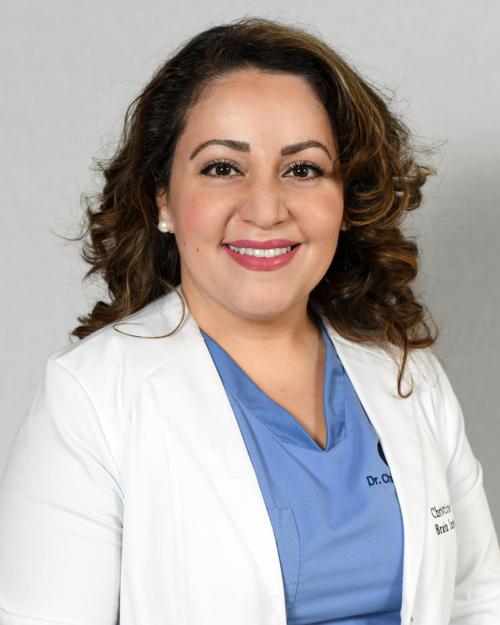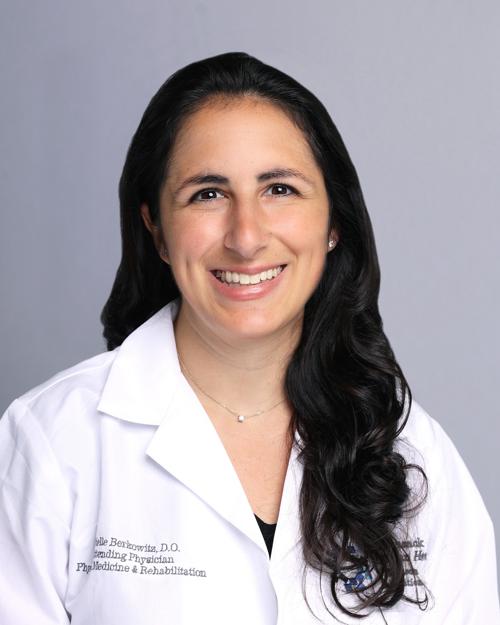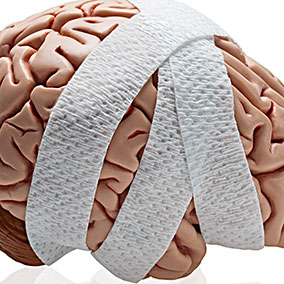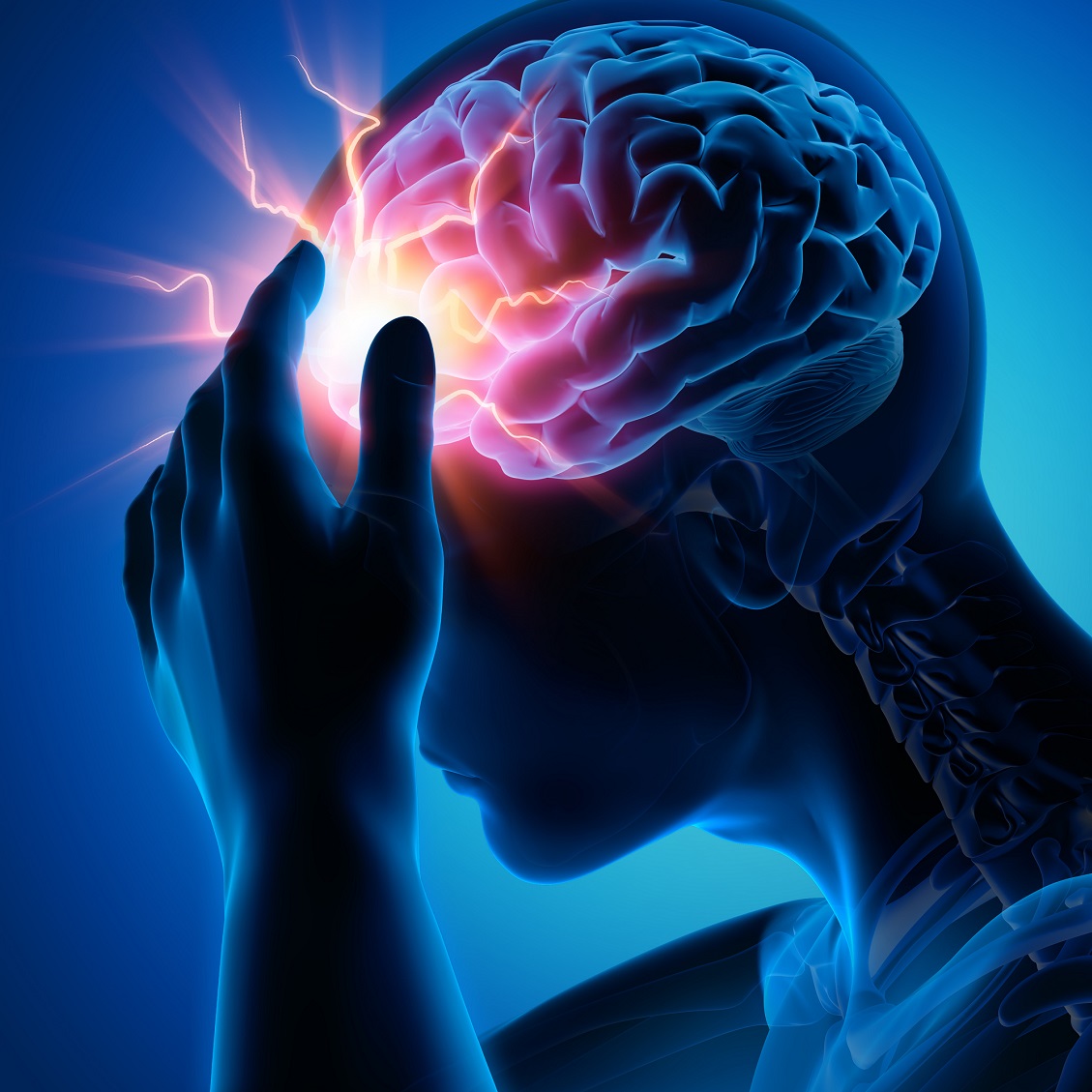An Evolution in Concussion Assessment and Treatment
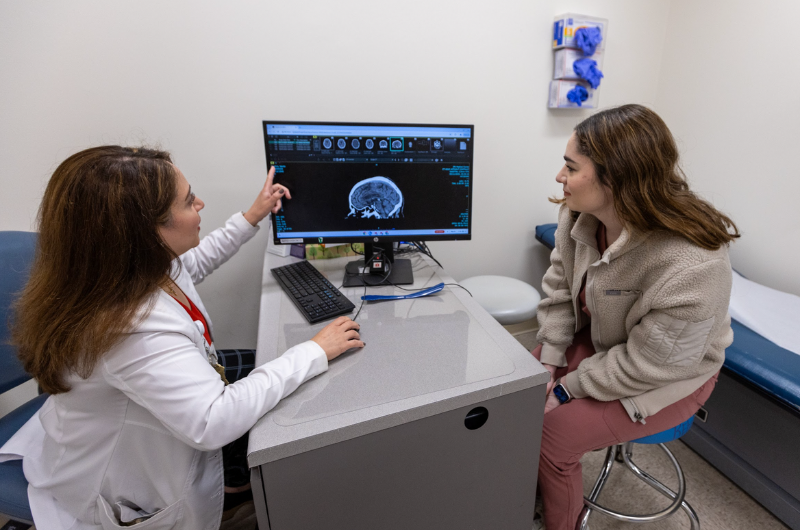
July 23, 2025
After a car accident last year, Lauren Trachtenberg, M.D., a resident physician at JFK University Medical Center, experienced persistent concussion symptoms. Fatigue, along with headaches, neck pain, extreme sensitivity to light and issues with balance and vision, hindered her ability to work her long shifts.
“I knew I needed a new path,” says Dr. Trachtenberg. Realizing her symptoms were not going away, she took up a new strategy: an evaluation and multi-pronged treatment plan from the Concussion Program at JFK Johnson Rehabilitation Institute.
Comprehensive Care
A full evaluation by Christine Greiss, D.O., medical director of the Center for Brain Injuries at JFK Johnson Rehabilitation Institute, uncovered the extent of her post-concussive syndrome. Dr. Greiss prescribed medications and comprehensive rehabilitation that included vestibular, cognitive and physical therapies.
The impact was immediate. “We did a lot of ‘brain training’ for vision and balance,” Dr. Trachtenberg recalls. “Physical therapy helped my neck pain, which was contributing to migraines. I worked on a ‘light board.’ Since I began, my symptoms have mostly resolved.”
It’s a relief felt by many patients, thanks to new approaches advanced at JFK Johnson. In years past, symptoms like concentration deficits, depression, anxiety and fatigue may have been vaguely attributed to post-concussion syndrome. Today, brain injury specialists can test the levels of prolactin, testosterone, cortisol and other hormones, as recent research has recognized that brain injury can impact the pituitary gland and cause neuroendocrine dysfunction that impacts hormone levels.
Experts may also examine speech fluidity, memory and attention, as well as reflexes and general health, or conduct a Vestibular Ocular Motor Screening, which looks at the systems involved with integrating balance, vision and movement.
“We explore how patients function in their lives and the pain and challenges they may face.
It’s not enough to just look for structural damage in the brain. Concussion can cause chemical changes,” Dr. Greiss says. “It’s like looking at the car’s engine and saying, ‘Nothing’s wrong.’ That’s not enough. You must see how the car drives out on the road.”
A New Approach
Dr. Greiss is a member of the physician committee created by the Commission on Accreditation of Rehabilitation Facilities, through which she can advise concussion programs nationwide on the latest breakthroughs.
Most people can recover from concussions – a brain injury caused by a blow to the head – within two to three weeks. But for others, the debilitating symptoms persist.
Patients with concussion are no longer advised to rest at home with the lights off, but to get out, walk and gradually incorporate activity back into their lives, says physical medicine and rehabilitation specialist, Arielle Berkowitz, D.O. She adds that some patients with concussion may have undetected injuries to their neck and shoulders that may contribute to migraines and headache.
“As rehabilitation medicine specialists, we tend to look more at the whole person,” says Dr. Berkowitz, who specializes in brain injury medicine. “Is our patient having trouble driving? Getting back to work? Do they need support at home?”
Experts say patients often tell them that family members, coworkers and even other physicians can miss the extent of their symptoms, as well as the benefits of treatment. Some are told they are fine, misdiagnosed or given improper medication.
“That’s unfortunate. The science and treatment of concussion has advanced swiftly in recent years,” Dr. Greiss says. “Today, patients need to seek out the most up-to-date care for concussion.”
Next Steps & Resources:
- Meet our sources: Christine Greiss, D.O. and Arielle Berkowitz, D.O.
- Learn more about JFK Johnson Rehabilitation Institute.
The material provided through HealthU is intended to be used as general information only and should not replace the advice of your physician. Always consult your physician for individual care.

